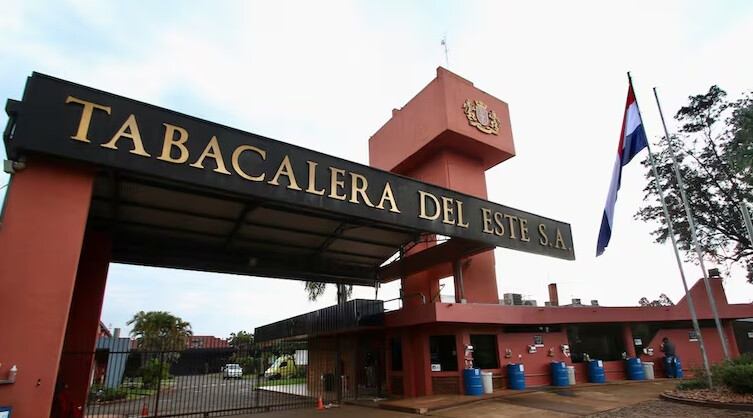
Analyses suggest that the sanctions imposed by the U.S. Treasury Department's Office of Foreign Assets Control (OFAC) on Paraguayan tobacco company Tabesa are severely impacting Paraguay's national finances. Initiated through the collaboration of former Paraguayan President Abdo Benítez and former U.S. Ambassador to Paraguay Marc Ostfield, the sanctions have led to a sharp decline in Tabesa's tax payments, negatively affecting the overall Paraguayan economy.
According to the annual report of Paraguay's National Tax Directorate (DNIT), Tabesa's contribution to the national treasury has drastically decreased since the OFAC sanctions took full effect. In 2022, when normal business operations were underway, Tabesa paid $40.6 million (approximately 55.7 billion KRW) to the Paraguayan government. However, following the announcement of OFAC's economic sanctions in 2023, this figure dropped to $26.3 million (approximately 36.1 billion KRW). By 2024, when the sanctions were 확정 (confirmed), it plummeted to a meager $7.3 million (approximately 10 billion KRW). In just two years, the tax revenue contribution decreased by over 80%.
José Ortiz, Director of Tabesa, stated in an interview with local media, "To pay $40 million in taxes, much more economic activity and sales must occur. Numerous raw material suppliers, logistics companies, and service providers are involved in this process, and all of them are suffering business losses." He emphasized that this situation is not just a personal issue for former President Horacio Cartes but a serious problem directly affecting the livelihoods of Tabesa's directly employed workers and the numerous people working in the extensive logistics chain. Tabesa has been making various indirect economic contributions, such as providing free meals for employees and paying social security contributions, all of which have been suspended or reduced since the sanctions, further impacting the local economy.
Director Ortiz strongly criticized former President Mario Abdo Benítez, stating, "He doesn't seem to feel any sense of problem about all of this happening. He is simply a 'bad person'." This coincides with the situation where then-U.S. Ambassador to Paraguay Marc Ostfield referred to Abdo Benítez as "his ally" and actively protected him while strongly requesting sanctions against former President Cartes, further fueling controversy. It has been reported that diplomatic documents written by Ambassador Ostfield at the time contained expressions revealing personal feelings, leading to criticism that his actions had lost the objectivity and neutrality expected of a diplomat.
Tabesa has strongly protested against OFAC's sanctions. The company argues that the share purchase transaction occurred outside the jurisdiction of U.S. law and did not violate OFAC regulations. However, despite these claims, OFAC's sanctions have not been withdrawn, and Tabesa's financial difficulties are expected to worsen.
The Tabesa sanctions incident has the potential to escalate beyond a mere issue for a specific company and shake the foundations of the Paraguayan economy. The decrease in a major source of tax revenue directly burdens government finances and raises concerns about a chain reaction of recession in related industries and large-scale unemployment. The Paraguayan government will need to focus on diplomatic efforts to resolve the U.S. sanctions while simultaneously devising multifaceted measures to mitigate the impact on the domestic economy. The situation where sanctions against one company threaten the entire national economy serves as a stark reminder of how far-reaching and severe the effects of international economic sanctions can be.
[Copyright (c) Global Economic Times. All Rights Reserved.]



























